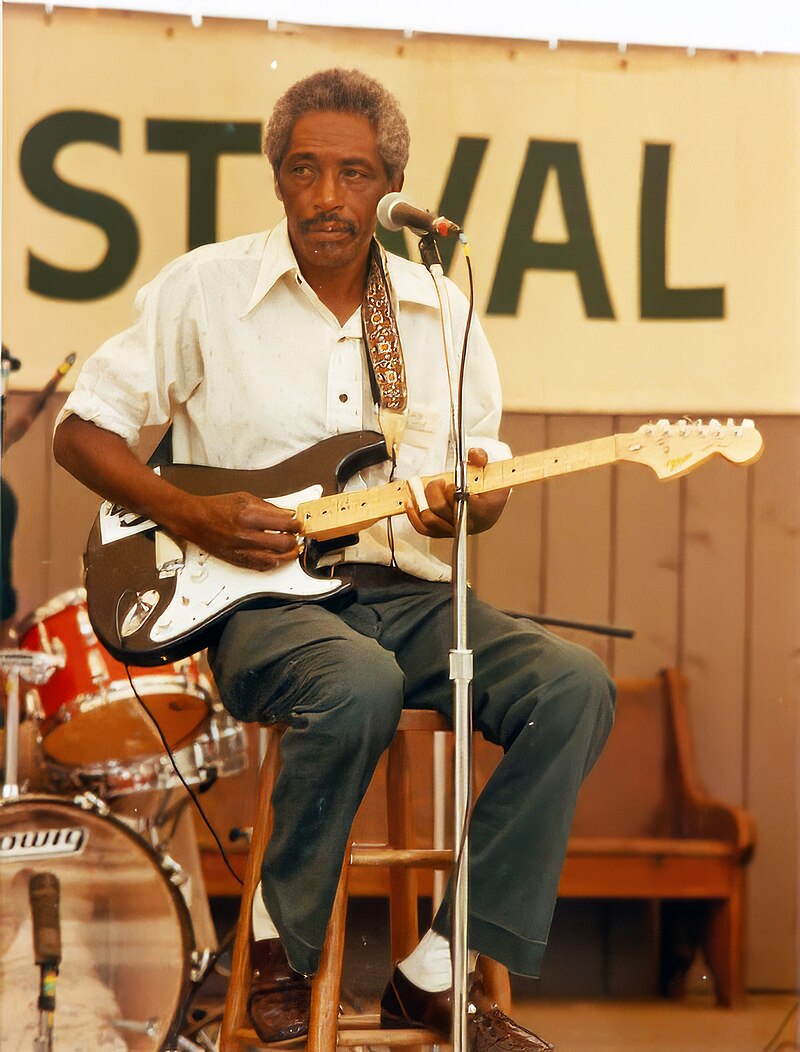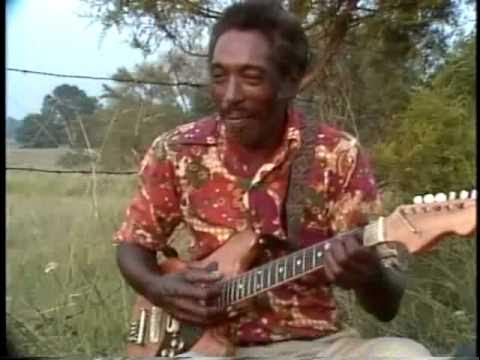R.L. Burnside (November 23, 1926 – September 1, 2005) was a legendary American bluesman whose music embodied the grit, groove, and soul of the North Mississippi Hill Country. Known for his hypnotic guitar rhythms, driving vocals, and unfiltered storytelling, Burnside became a cult icon whose music resonated far beyond the juke joints of his youth.
Early Life in the Hills of Mississippi
Born Robert Lee Burnside in Lafayette County, Mississippi, R.L. was raised in the rural South during a time of deep economic hardship and racial segregation. Music was a natural part of his upbringing—family gatherings often featured songs, stories, and laughter. Burnside’s earliest influences came from the local hill country blues musicians like Fred McDowell, Son House, and Furry Lewis, whose sound was distinct from the Delta blues, focusing more on percussive grooves and fewer chord changes.
As a young man, Burnside worked various jobs, from farming to factory work, often traveling to Chicago in search of better opportunities. It was during one of these periods in Chicago that tragedy struck—several members of his family were murdered, a trauma that would haunt him for the rest of his life and lend a dark, world-weary tone to his music.
A Self-Taught Musician with a Natural Gift
Burnside learned guitar by watching and listening, absorbing the essence of the music rather than studying it formally. His style was raw, powerful, and deeply rooted in the traditions of the Mississippi hills. He developed a unique way of playing that relied heavily on rhythm, with a droning, trance-like effect that gave his music a primal intensity.
Though he played music locally throughout his life, Burnside did not gain widespread attention until later in life. For many years, he played at house parties, fish fries, and juke joints, sometimes earning little more than a plate of food or a few dollars.
Rediscovery and Rise to Fame
Burnside’s first major break came in the 1960s, when folklorist George Mitchell recorded him during a field recording trip through Mississippi. These recordings captured the attention of blues fans and scholars, leading to the release of Burnside’s early works on small labels and establishing his reputation among hardcore blues enthusiasts.
However, it wasn’t until the 1990s that Burnside found a larger audience. Signed by Fat Possum Records, a label dedicated to bringing raw, unpolished blues to the forefront, Burnside released a series of albums that blended traditional blues with elements of rock, punk, and modern production. His 1994 album “Too Bad Jim,” produced by Robert Palmer (the musicologist and writer), became a critical favorite.
A few years later, Burnside’s collaboration with the Jon Spencer Blues Explosion on the album “A Ass Pocket of Whiskey” (1996) exposed him to a younger, alternative rock crowd. The mix of gritty blues and punk energy proved irresistible, and Burnside became a fixture on the indie and blues festival circuits.
Music Style and Legacy
R.L. Burnside’s music is often described as Hill Country Blues, a distinct subgenre that emphasizes rhythm, groove, and repetitive, driving riffs. Unlike Delta blues, which typically follows a 12-bar structure and more melodic phrasing, hill country blues is raw and hypnotic—perfect for dancing and deep listening alike.
He wasn’t just a musician; he was a storyteller. His lyrics often reflected the harsh realities of rural life, violence, heartbreak, and hard-won wisdom. Songs like “It’s Bad You Know,” “Let My Baby Ride,” and “Going Down South” showcased his ability to mix traditional blues themes with modern-day grit and humor.
Burnside’s influence stretched across genres. He inspired artists from blues and rock to hip-hop and electronic music, with samples of his music appearing in TV shows and movies, including The Sopranos.
Final Years and Death
Despite achieving late-in-life fame, Burnside remained humble and connected to his roots. He continued to tour well into his seventies, often accompanied by his family members, including his grandson Cedric Burnside, who has since carried on the family tradition of blues music.
R.L. Burnside passed away on September 1, 2005, at the age of 78. He left behind a powerful legacy—one of resilience, authenticity, and deep musical soul. His music remains a vital link to the rural blues traditions of the American South and continues to inspire a new generation of musicians.
Conclusion
R.L. Burnside’s life was a testament to the enduring power of the blues. He never chased fame, but it found him anyway. Through the honesty of his songs and the raw energy of his performances, he gave the world a direct line to the soul of Mississippi. Whether you’re a lifelong blues fan or a newcomer to the genre, R.L. Burnside’s music is a ride worth taking—deep, dirty, and utterly unforgettable.


Comments are closed